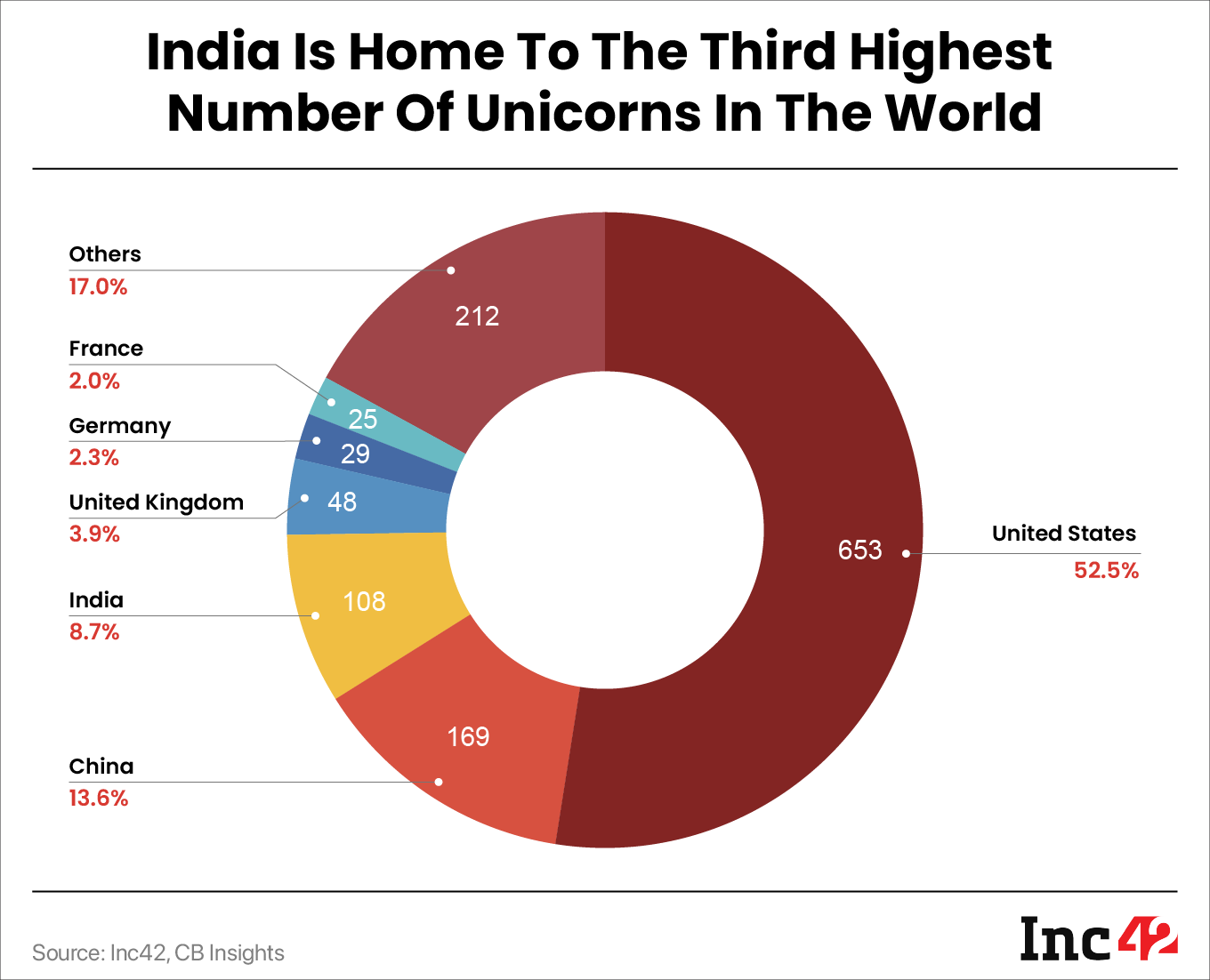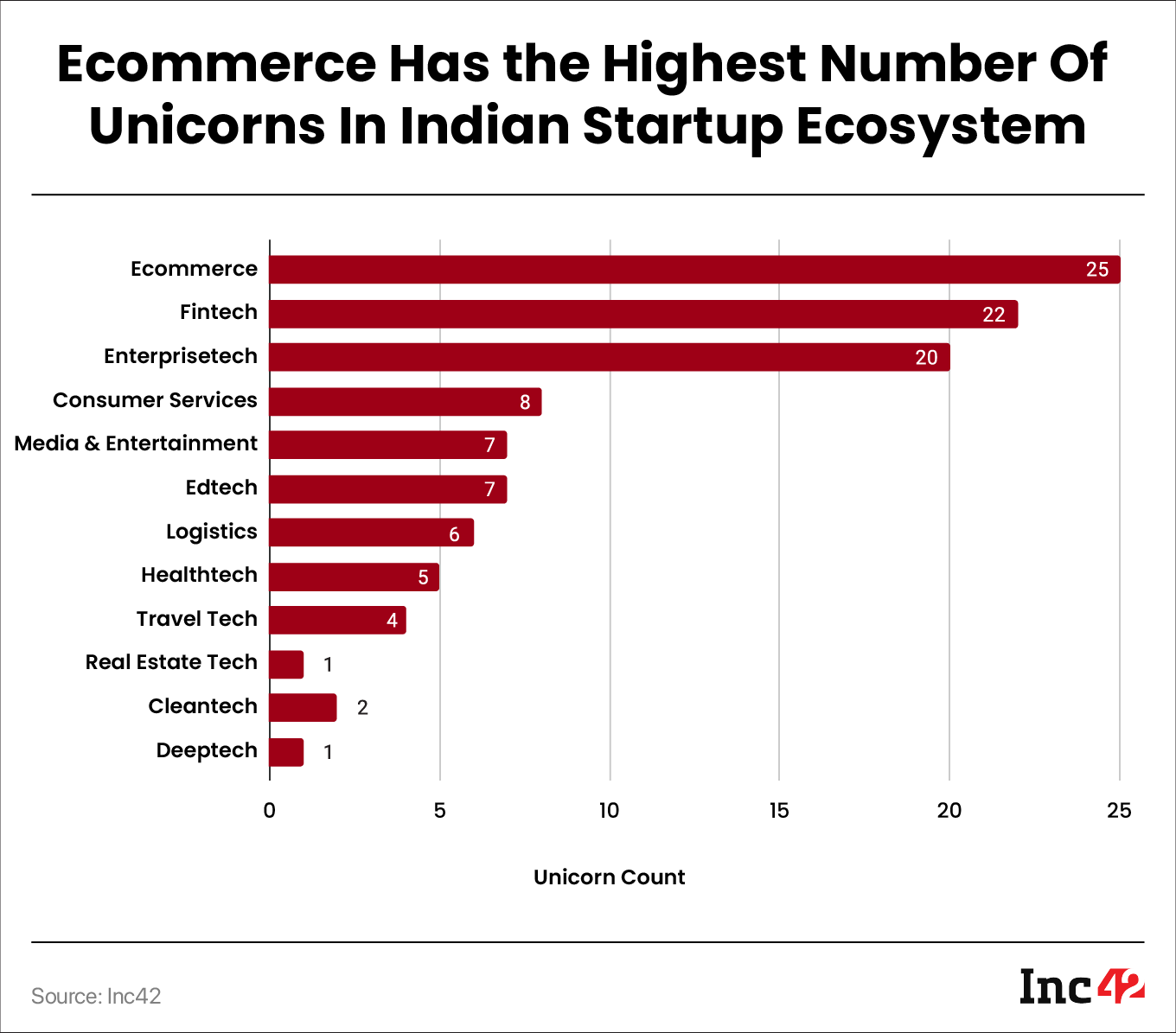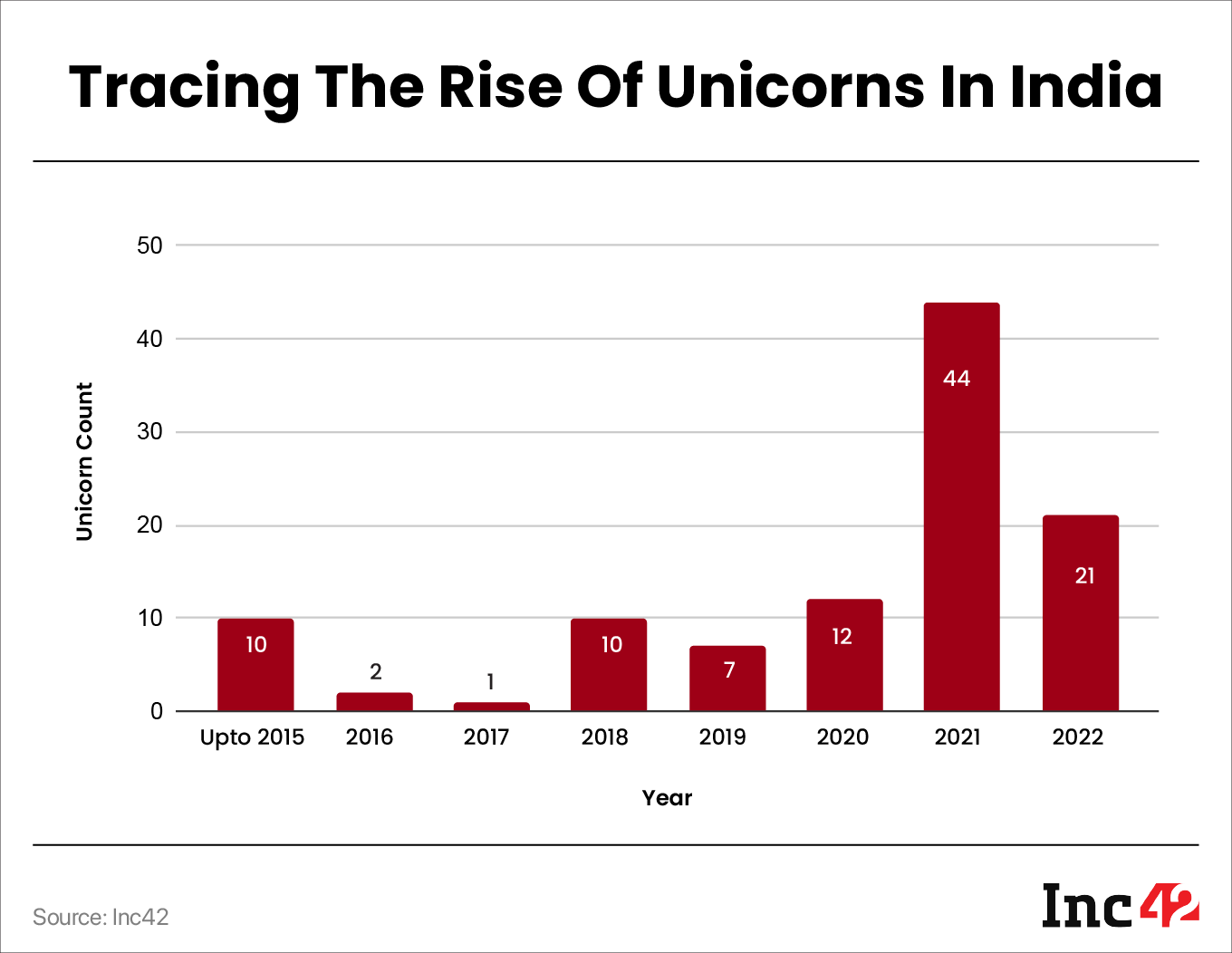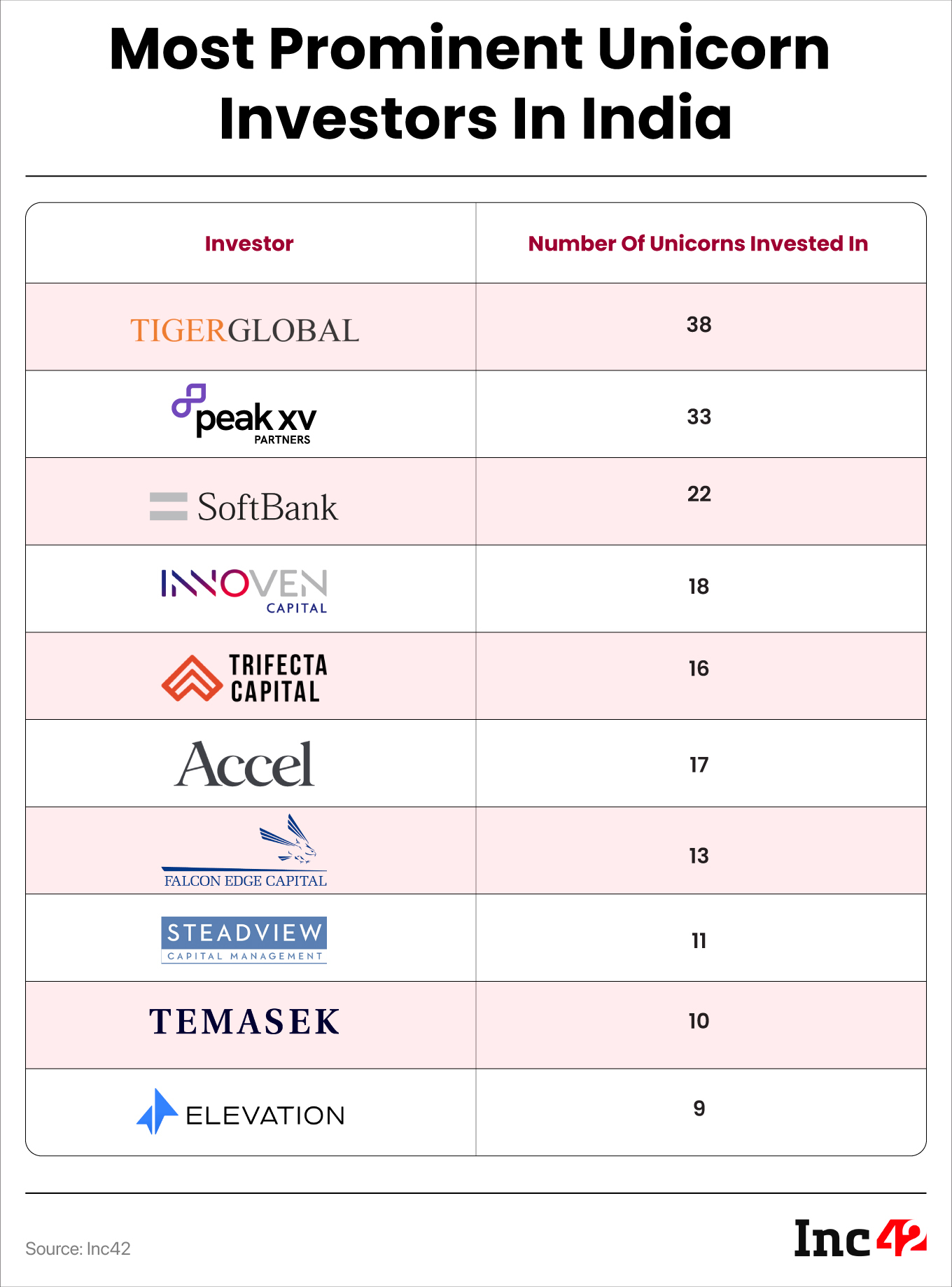What Is A Unicorn?
A unicorn means a a privately held company or a startup that reach a valuation of over $1 Bn. It was coined by venture capitalist Aileen Lee in 2013 who believed that these startups were exceptionally rare, comparing the likelihood of discovering one with that of a mythical unicorn.
How Many Unicorns Are There Globally?
According to Inc42’s analysis, there are 1,224 unicorns globally. With 108 unicorns, India ranks third in the global unicorn race, after the US at 653 and China at 169 unicorns.

What Is The State Of Unicorns In India?
In 2011, adtech startup InMobi became India’s first unicorn, marking a significant milestone for the country’s startup ecosystem. In total, there are currently 108 Indian startups that have achieved unicorn status, with a combined valuation of $345 Bn. These startups have collectively raised an impressive $94 Bn+ in funding.
Unicorn Companies In India
There are currently 111 unicorns in India. You can find the entire list below:
Explore Indian Unicorn TrackerAccording to Inc42’s analysis, more than 53.7% of unicorns were created post-2021. In 2021, India witnessed a remarkable surge in unicorns as an impressive 44 startups joined the prestigious club — a significant leap from the 12 additions in 2019.
The country also celebrated a major milestone in May 2021 when neobanking startup Open became the 100th unicorn after raising $50 Mn from IIFL. According to Inc42’s analysis, India will have 250 unicorns by 2025, second only to the US.

What Is The Difference Between A Decacorn And A Unicorn?
Unicorns with a valuation of over $10 Bn are known as decacorns. These include startups such as Flipkart (acquired by Walmart), BYJU’S, Swiggy and Nykaa.
How Have The Macroeconomic Upheavals Impacted India’s Unicorn Dream Run?
2021 was the golden year for India’s startup ecosystem as it minted 44 unicorns. However, the onset of macroeconomic challenges, such as concerns about a potential recession and escalating geopolitical tensions between Ukraine and Russia, triggered a funding downturn that has persisted since the previous year.
As a result, only 21 startups were able to achieve the coveted unicorn status in 2022.

Who Are The Most Active Unicorn Investors In India?
Tiger Global Management takes the lead as India’s most active investor in unicorns, boasting an impressive portfolio of 38 startups. Following closely is Sequoia Capital India, now Peak XV Partners, which has invested in 33 unicorns, while SoftBank stands strong with 22.

How Long Does It Take For A Company To Enter The Billion Dollar Club?
The time it takes for a startup to become a unicorn can vary and is influenced by several factors. However, there is no fixed timeline for achieving the unicorn status.
In India, Pine Labs took 22 years to join the billion-dollar club, whereas Swiggy took 4 years and GlobalBees and Mensa Brands took 7 months and 6 months, respectively, from the time of their inception to reach 1 Bn+ valuation.
After assessing 107 of India’s unicorns, Inc42 found that on an average, it takes 7.57 years for a startup to become a unicorn.
What Are The Challenges Of Being A Unicorn Company?
Some of these problems include:
- Sustaining Growth: Maintaining a high growth trajectory and adapting to dynamic market conditions.
- Managing Investor Expectations: Meeting high investor expectations, while scaling rapidly and maintaining operational efficiency.
- Valuation Cuts: Indian unicorns have been under scrutiny due to their valuation-to-revenue multiples. This ratio is determined by dividing a company’s valuation (either enterprise or equity value) by a specific financial metric such as revenue.








